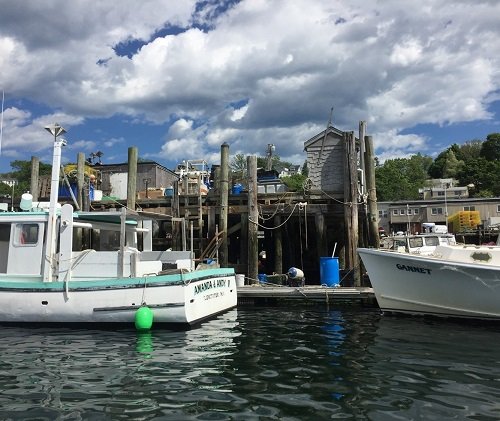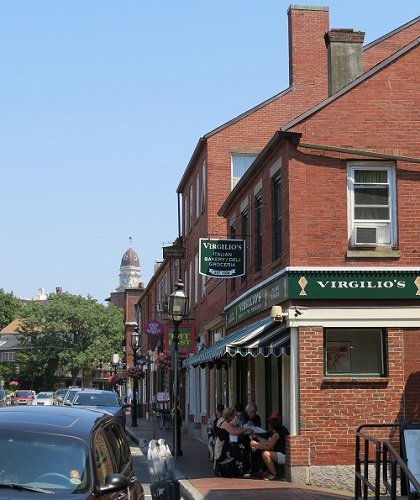Local Foods, Local Places: Gloucester, Massachusetts
Gloucester, Massachusetts, is a town of around 30,000 people on the eastern end of Cape Ann. In 2016, the town leveraged Local Foods, Local Places planning assistance to strategize about how to build on recent successes.
Since the 1600s, Gloucester’s rich maritime heritage has defined its identity and economy. The port of Gloucester is the oldest in the country, and the city has historically served as a principal hub for the New England fishing industry. However, multiple challenges have threatened the local fishing industry, including low prices, catch limitations, and the seasonal nature of the industry, which are especially difficult for the smaller-scale fishing operations and boats of Gloucester’s day fleet.
Gloucester responded with a multi-pronged approach to cultivate local support for the city’s seafood industry. The Gloucester Fishermen’s Wives Association, founded in 1969, raises awareness of and addresses problems facing the New England fishery. The association educates the community about fisheries, works with local fishermen on market-based approaches to earn a living while sustaining fisheries, and advocates for a clean, healthy, sustainable ocean.

Since 2008, Cape Ann Fresh Catch, a community-supported fishery, has been in operation. Following the community-supported agriculture model, members purchase shares at the start of the season that entitle them to weekly allotments of fresh seafood. Members get fresh, high-quality seafood, while fishermen have a reliable market for their product. They also provided recipes to help customers learn how to prepare lesser-known species that might otherwise be discarded, as conventional grocery outlets sell a small number of the species that are caught.
The town's Gloucester Fresh initiative has also aimed to sustain and improve the local seafood industry. Funded by a $151,000 state Economic Seaport Council grant, the program supported exhibitions, created a branding campaign, and developed a contract with the Ninety-Nine Restaurant and Pub to serve city-branded fish at its more than 100 locations across New England.

Following LFLP assistance in 2016, Gloucester Fresh received a $20,000 USDA Rural Business Development grant in 2017 to build a demonstration kitchen to help showcase the benefits of local, underused species. In addition, in 2017, the community applied for and received a $50,000 grant from the National Endowment for the Arts’ Our Town program, as a direct result of the workshop.
For town leaders, saving the local seafood industry was about more than the local economy. The working waterfront is the foundation of the city’s authentic sense of place, which could not survive the loss of the industry. Gloucester exemplifies how local food and local places are intertwined and mutually dependent.
Lessons Learned
- Success is built from many small initiatives instituted over time, not one silver bullet.
- Changing perceptions and attitudes about local food can be time-consuming but is an important process.
- The local food industry is integral to the city’s sense of place and as worthy of preservation as any local asset.
This case study appears in the Local Foods, Local Places Toolkit. You can also learn more by visiting the Smart Growth in Small Towns and Rural Communities page.
Published July 2017.
Source: Personal communication with Salvatore L. Di Stefano, Senior Economic Development Director, City of Gloucester.
